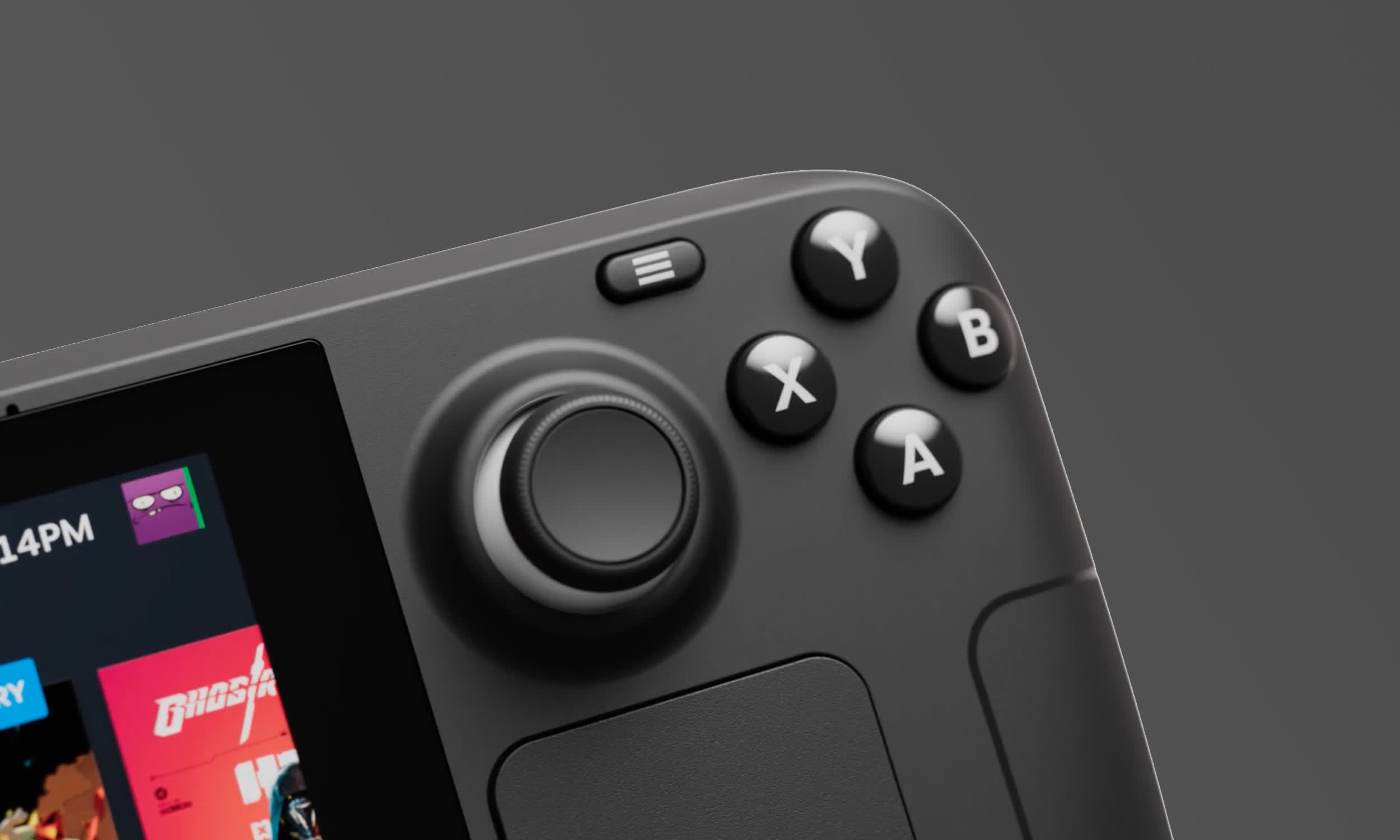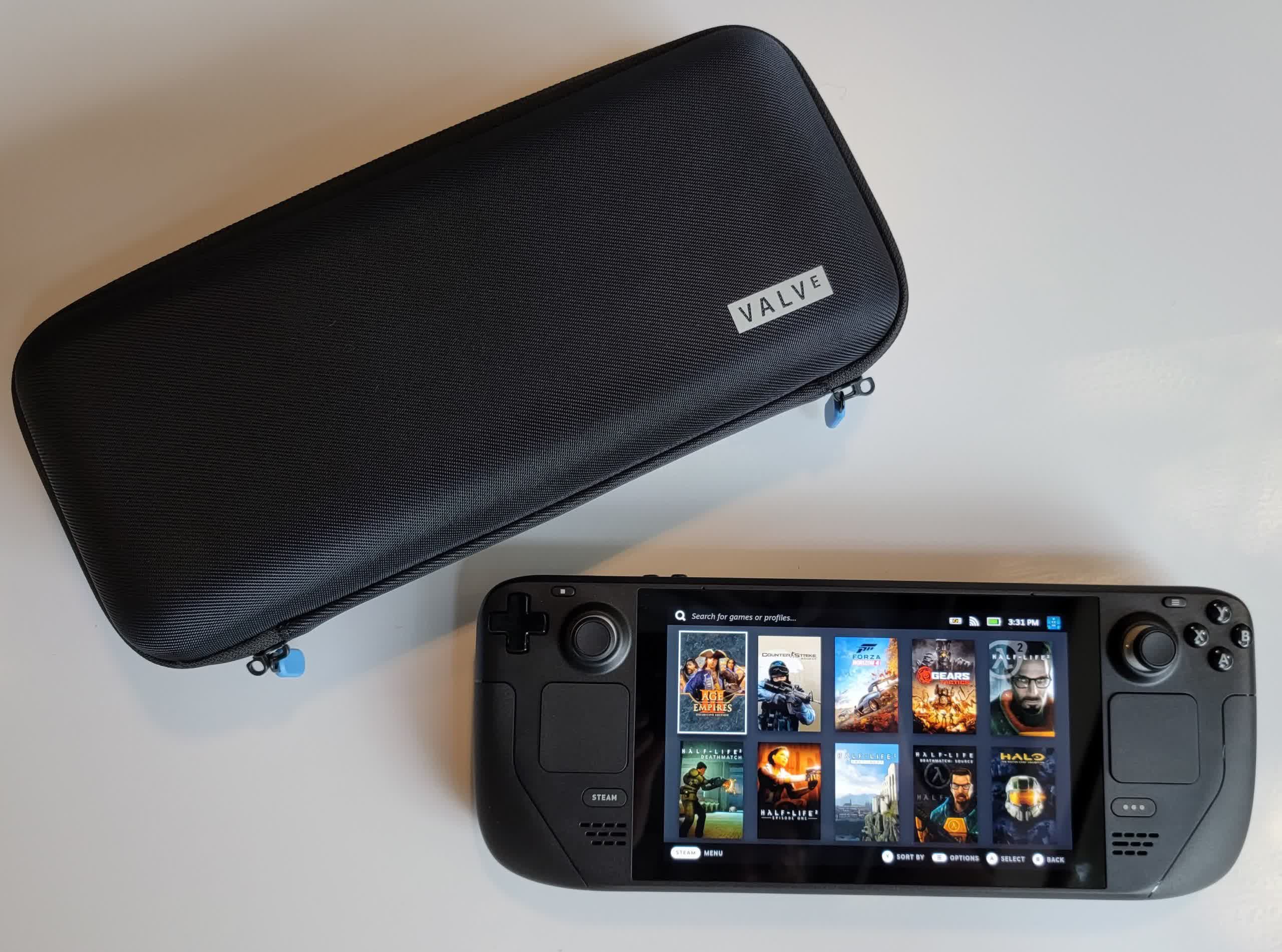Something to look forward to: Valve confirmed months ago that more versions of the Steam Deck would eventually arrive, but offered no details on how they would differ from the company's freshman model. Now we have more information on how Valve plans to improve its hardware in future iterations.
In an interview with The Verge, Valve shed some light on its next steps for the Steam Deck, SteamOS, and other projects. The company even chimed in on recent competing handheld PCs and its ill-fated "Steam Machines" project.
Also read: I have a confession to make: I've spent several hundred dollars on Steam Controllers
Users shouldn't expect a significantly more powerful "Steam Deck 2" anytime soon. Instead, the next version of Valve's handheld could be a light upgrade similar to the OLED model of the Nintendo Switch. Steam Deck designers Lawrence Yang and Pierre-Loup Griffais said they would want a new model to feature a better screen and longer battery life.
Valve would rather keep the Steam Deck's hardware profile consistent to make things easier for users and developers. Griffais said keeping the platform tied to one consistent performance level will help users manage expectations and help developers optimize for the hardware.
Griffais thinks the Steam Deck's current configuration will likely be about the best that a handheld system can achieve for a while. Other companies have recently introduced handheld gaming PCs --some a bit more powerful than Valve's --but it thinks its 8-12W TDP is currently the best balance between performance and battery life.

The company also wants to let other handheld PC vendors use or fork the Steam Deck's operating system. In July, GPD claimed Valve contacted it about integrating SteamOS into the GPD Win Max 2. The policy could turn into a handheld-oriented second attempt at Steam Machines.
Valve previously tried to introduce a line of pre-built PCs from various vendors for living rooms, accompanied by the Steam Controller and an early version of SteamOS. However, the effort was unsuccessful. Valve can help other companies deliver alternative takes on the idea now that the Steam Deck has succeeded where Steam Machines failed.
Those alternatives don't need to be handhelds, either. While Valve doesn't have advanced plans for a new Steam Machine, it is experimenting with TV-oriented options. The company isn't against letting other vendors apply the work it did on the Steam Deck UI to TV boxes.
Other improvements that Valve is eyeing for future Decks include making the battery easier to replace, fixing Bluetooth audio lag, getting games that use anti-cheat working on Steam Deck, and more. The company also plans to offer an audio mixer so users can better manage game audio, chat audio, and music.
The ability to share power profiles, which let users set the handheld's GPU clock, refresh rate, and wattage on a per-game basis, might also eventually arrive. Unfortunately, there probably won't be a way to share in-game graphics settings.
Valve also plans to make a follow-up to the Steam Controller, which it stopped producing in 2019. The company is currently too busy working on the Steam Deck but is looking for an opportunity to revisit the Steam Controller.
